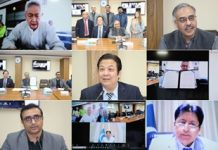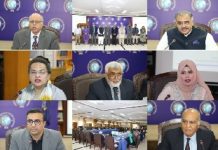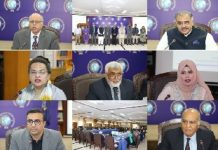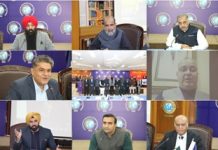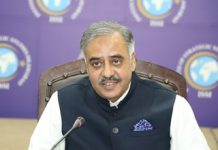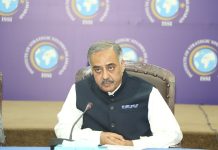Remarks by DG ISSI Ambassador Sohail Mahmood at the Book Launch “Critical Issues Facing South Asia: Politics, Security Non-Traditional Challenges “, ISSI,
8 October 2024
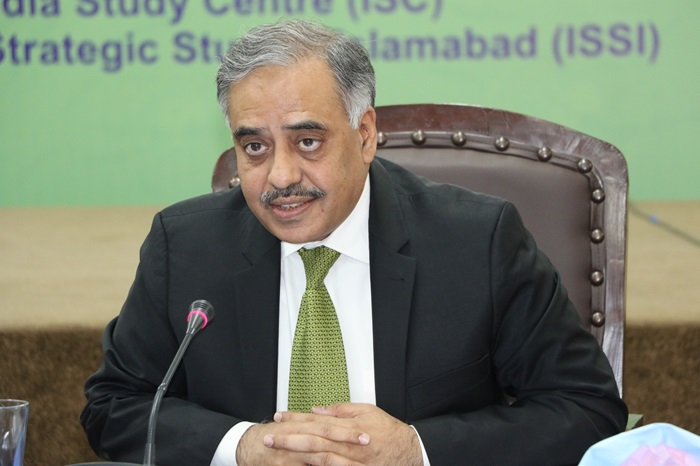
It is a pleasure and privilege to welcome Ambassador Jalil Abbas Jilani, former Foreign Minister and Foreign Secretary of Pakistan, to the ISSI again. We deeply appreciate his consistent support to the Institute and his invaluable contributions to the policy discourse across the whole spectrum of Pakistan’s foreign policy.
Today’s event is much more than a book launch. It is the culmination stage of one of the ISSI’s futuristic initiatives of academically engaging and empowering our Next Generation. The participation of Foreign Minister Jilani and two of our highly accomplished academics, Dr. Shabana Fayyaz and Dr. Asma Shakir Khawaja, is, therefore, especially meaningful. I have no doubt that their views and perspectives would further enrich the process of professional grooming that our young scholars are currently under-going.
Distinguished participants,
As the world navigates an increasingly complex and unpredictable geopolitical landscape — both globally and at the regional level — it is evident that the challenges being faced are novel, multiple, and many a times unforeseen – thus going beyond the pale of traditional conflict management and conflict resolution frameworks. The book Critical Issues Facing South Asia: Politics, Security & Non-Traditional Challenges is a collection of thoughtful papers on such complex challenges — ranging from the rise of terrorism in the age of social media and the militarization of Artificial Intelligence to existential threat of climate change and increasing water scarcity. These issues demand deeper and more nuanced understanding, fresh approaches, and innovative solutions.
In South Asia, where historical and entrenched rivalries are occasioning a rigid stalemate, the need for finding newer ways of addressing the multifaceted threats and challenges could hardly be over-emphasised. Accepting the challenge, this book not only re-evaluates the existing issues and strategies but also purports to offer some creative solutions. Based on in-depth research, the recommendations made by the new generation of security experts are indeed laudable. Using innovative methodologies, and analysing issues from their unique vantage points, they have sought to suggest practical ways of tackling the multifaceted challenges between India and Pakistan and the region at large.
Just to give a flavour, the book provides an insightful examination of the regional security dynamics, particularly focusing on the evolving nature of terrorism and the implications of emerging technologies. For instance, it delves into potential misuse of commercial drones by terrorist organisations, embeds this concern within Pakistan’s legal frameworks, and offers actionable points for consideration of policy-makers. Similarly, it analyses the key terrorist organization’s strategic evolution towards soft power tactics, especially through social media as a recruitment tool, and underscores the imperative need for stronger counter-narratives to combat radicalisation.
Another paper assesses how India is adapting its military strategies in response to developments in the AI domain, providing viable recommendations for Pakistan on maintaining strategic stability. Yet another one examines U.S. Integrated Deterrence policy and its potentially destabilizing effects on South Asia, advocating for Pakistan’s engagement with both China and the U.S. Additionally, discussions on India’s space militarization raise concerns regarding nuclear deterrence and regional security. The book concludes with innovative solutions to non-traditional challenges, including cultural cooperation initiatives between India and Pakistan and critical analyses of water scarcity issues that threaten regional stability.
On ISSI’s 51st Foundation Day in June 2024, this book was presented to the Honourable Deputy Prime Minister and Foreign Minister, Senator Mohammad Ishaq Dar. Today’s launch would make is more widely available to the academic, research and think-tank community.
Engaging NextGen scholars is part of the ISSI’s new vision. It recognises the youth as one of the key stakeholders and seeks to proactively draw them into the policy discourse so that their fresh ideas and perspectives could also be factored in. This is essential for helping them develop a deeper understanding of the issues at hand and equipping them with ways of making more informed and insightful evaluations. In the process, the ISSI is glad to serve as a vital platform for both fostering new ideas and amplifying the voices of the young emerging experts, duly mentored by senior scholars and experienced academics and practitioners.
In this very instance, we were happy to invite the NextGen researchers last year to write their papers, present these during a full-day conference in March 2024, and have now published them in book form. It has been a deeply gratifying and fulfilling journey for us at the ISSI and I hope it has been so for our young authors as well. I do wish to place on record my sincere appreciation for our Research Associate Maheen Shafiq and Director ISC Dr. Khurram Abbas and the entire ISC team.
I once again congratulate the NextGen authors for their tremendous efforts and encourage them to keep contributing actively to the policy discourse on South Asia and other areas of their interest. All power to your vision and your pen!
Thank you!




